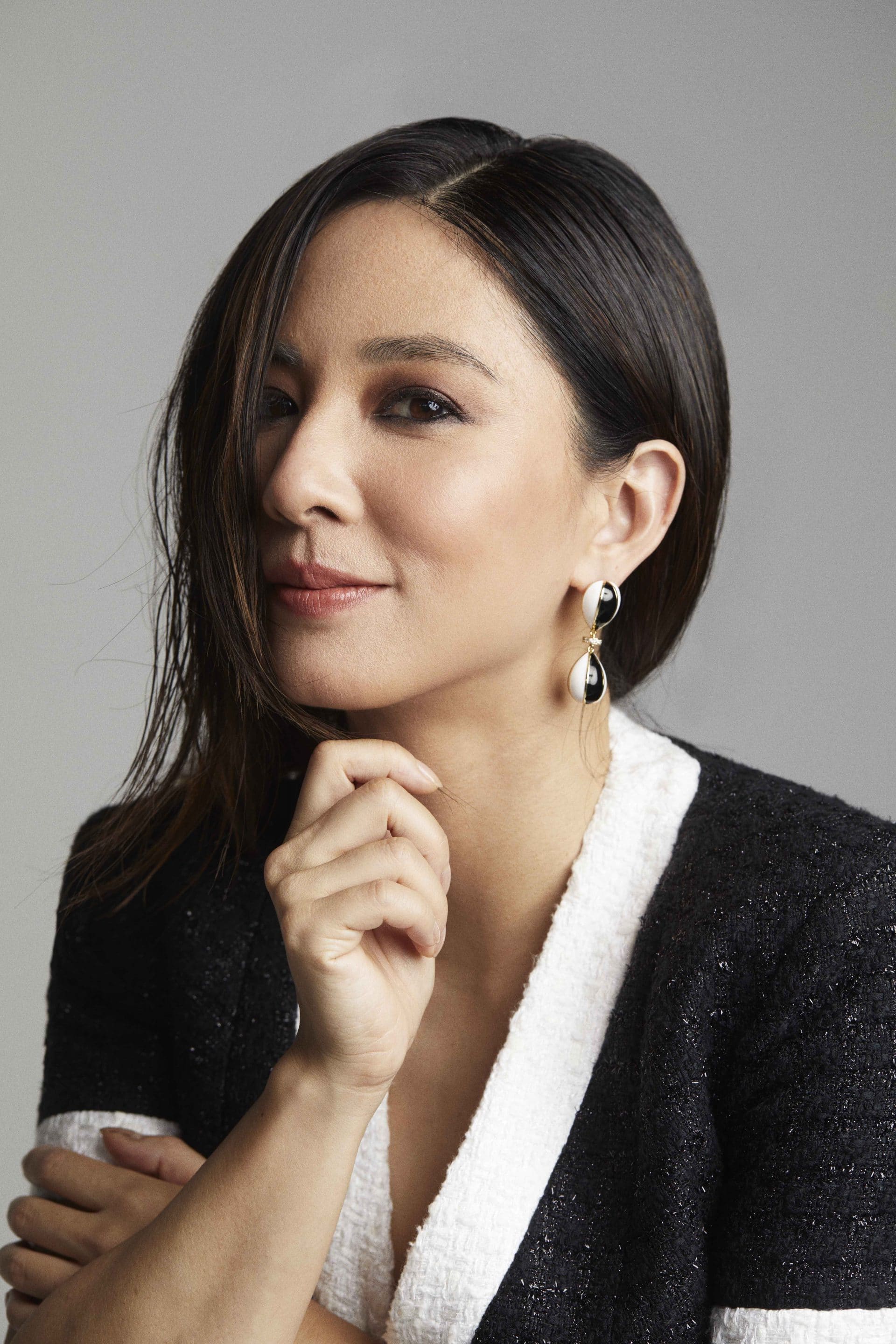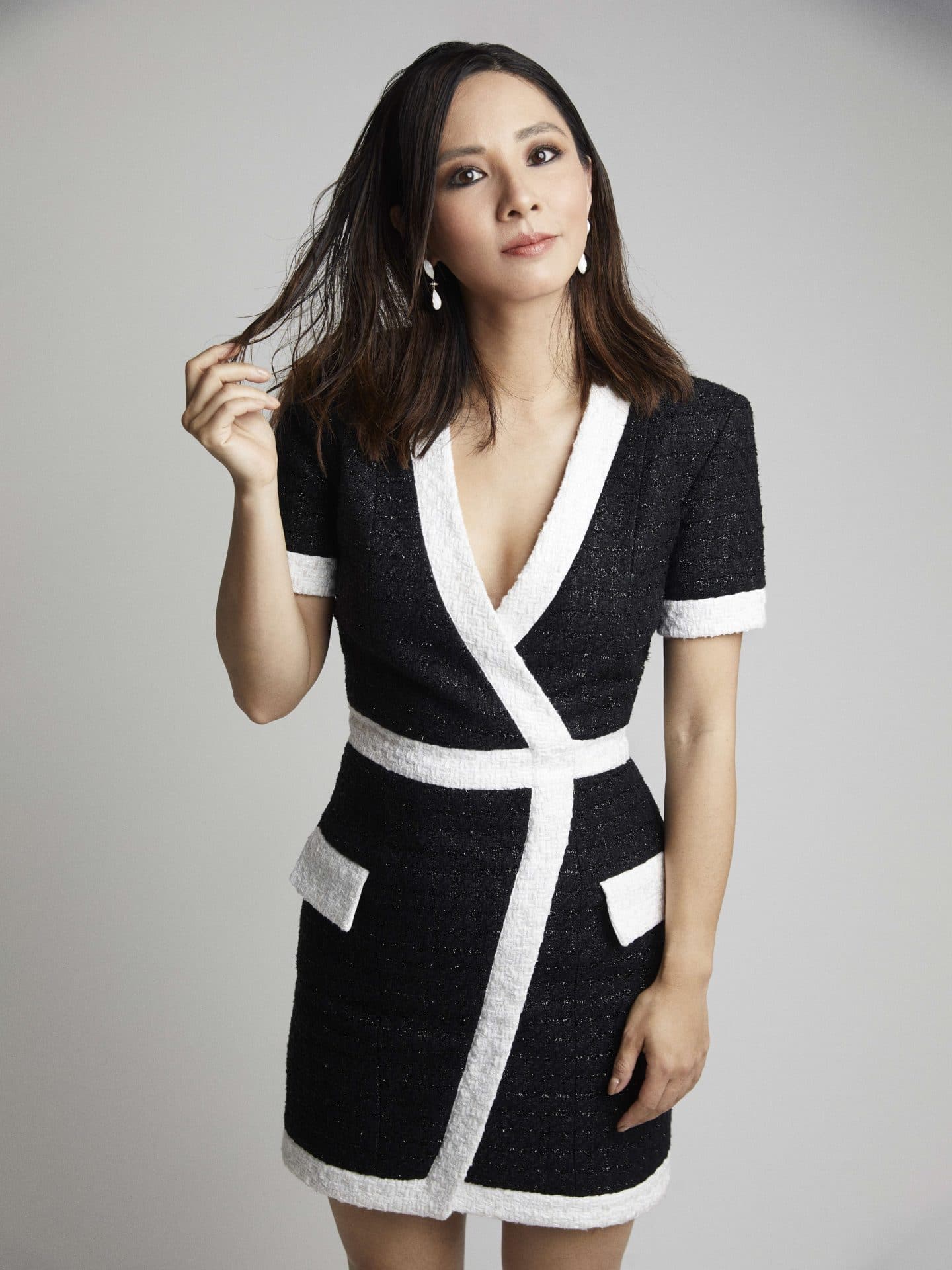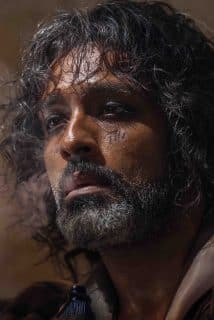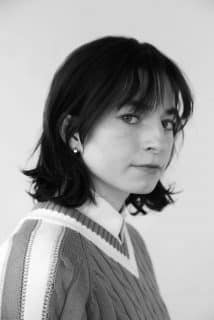‘To the Asian actors, this is a moment of pride’ Jing Lusi on Red Eye
Culture
Jing Lusi talks to us about her leading role in ITV's Red Eye, East Asian representation, and her mental health journey.
Jing Lusi is about to be a household name, as she takes the lead in the new Sunday night ITV thriller Red Eye. Playing DC Hana Li, she has to escort Dr Matthew Nolan (Richard Armitage) back to Beijing where he has been accused of a crime. But as the bodies pile up on the plane, it seems there is a larger conspiracy at work…ah yeah, it’s all irresistible stuff, with twists and fights and intrigue aplenty within the confines of the plane. And Jing is outstanding in it, a born action hero with brains, guiding the audience along as she tries to work out who’s side Nolan is on – if there is such a thing as a side, in the this murky world.
As you will see in our interview with Jing, taking the lead in such a show as a British-Asian means a lot to her – and many others too. She is probably best known for Crazy Rich Asians, the 2018 hit rom-com and feels that the UK is lagging behind the US in representation for East Asians in films and on TV. It means that Red Eye is not simply a dead-ahead brilliant thriller, but a ground-breaking piece of work. We also talked mental health, guns and Gladiators…
Can you tell us about it then? You must be delighted to be in a big ITV thriller.
Yeah, of course, it’s this huge show, but it’s also really good. It’s just an amazing concept. And when I read Hannah, I thought she was a great character.
You start to see all the cogs start to turn in her as she goes, ‘hang on a minute, this situation this isn’t what it’s made out to be.’ And then for the rest of the series, she’s on this mission.
There was so much going on with her for a character, let alone a female character, let alone an Asian character, and I immediately thought this is breaking a lot of new ground, actually.
What do you mean?
In terms of her fronting up a series like this and the story being told through her eyes. Nolan is getting into the the murder mystery or whatever’s going on in the plane, but she’s taking you on that journey with her.
And for me, it was like, ‘Wow, she’s not the Other.’ She’s just seeing it through sort of Westernised eyes and you’re with Hannah. That’s very groundbreaking.
But also just the concept, the ambition, it doesn’t feel like a mainstream show, it feels almost like a big movie.
Any thriller set in a small location is just irresistible for people, plane films, space films…
Hijack did so well, and we were really buoyed up by that. And this is a completely different concept.
I think the drama of such a small setting is that you are helpless. You are so helpless. You’re up in the air, you can’t land, you can’t escape.
I thought it was very much like a play. A little bit of a two hander with Richard and I, on one set.
Where did you film it?
The plane was an actual plane in a hangar in Maidenhead. I thought there was going to be a plane that’s been cut up, like we can take off the roof off and take out the floor so we can get the camera crew in. But no, it was just a plane.
Imagine a plane with two camera crews in, and all these burly men carrying heavy equipment. I mean, I can barely fit in. Somehow it worked though, and it really added to the intensity.
What was your approach to playing Hannah?
Hannah is now a Detective Constable, but when I was sent the script originally, she was the special firearms officer, so I felt like she was someone who knew guns very well. I had done quite a lot of gun training in other movies and I happened to be in LA, so I took some tactical training classes, which was so helpful.
And then when I came back, they’d rewritten her as a Detective Constable because it made more sense that a detective was accompanying someone like Nolan. I was like, OK, well, I hope I get to play with guns!
And you do – how were the fight scenes too? Do you like doing them?
Yes. I was like, ‘Was I a cage fighter in the previous life? Do I have anger issues?’ I love fight scenes, I don’t know why. It’s just when you’re an actor, everything is very, very kind of emotional. It’s internalised. Very nuanced. And so to come to work and just blow out and do the things that people probably want to do in everyday life but can’t as human beings in society. You have the opportunity to unleash.
Can you tell us about working with Richard? He’s become a bit of cult figure…
He has. They wouldn’t tell me who was cast at first, and I was kind of imagining all kinds of people. When they told me, I was like, ‘Oh, this is so interesting.’
Especially his voice. He’s got such a deep voice and this presence. Because he doesn’t live in England, we didn’t have much time to rehearse, and you don’t really get much time anyway for a television series. We were just thrown in. But we had such a similar approach and really synergised in terms of what the scenes should be.
As they go through the series, the relationship between our characters really shifts. They’re both learning so much from each other, and they actually become more reliant on each other. It would be hard to imagine that with anyone else, having done that with Richard.
Are you seeing a change in the roles you’re getting offered? We hear a lot of talk about changes in representation and inclusivity on screen, but is that the reality?
It’s a very slow change in the UK in terms of representation. The biggest thing for me is yes, you can put diverse actors on screen in supporting roles, but it’s a little bit like just decorating the landscape with diversity.
What really matters and what’s really important and where I think Red Eye is groundbreaking, is when you put a minority in the leading role. To go, here’s our main protagonist, she’s telling you the story. That hasn’t been done.
There’s a big difference between the UK and the US. I use Crazy Rich Asians as a turning point, which came out in 2018. Since then, that has spawned in the US things like The Farewell, Shang-Chi, Everything Everywhere All At Once, Beef, all those things.
Not only have these shows and films been commercially successful, but the leading actresses have gone on to win Golden Globes, Oscars and been the first to do that.
How can you start to change things over here?
It’s a good question. I’m sure they want to make money and want awards, like those shows in the US. Why haven’t we done that here?
For me, writing is important. I started writing way before Crazy Rich Asians because there was no opportunity there was no visibility. And I was like, ‘Well, rather than be just like a victim in this, what do you want to do about it?’
So I started writing my own perfect role in my perfect project. And it turned out to be this Asian Ally McBeal, because I have a legal background. It was picked up by Working Title and that spawned my writing career. Since then, I’ve written for Netflix, developing shows with an Asian voice because I feel there’s a lack of these stories.
So I think we just need to a bit more of a kind of gradual approach.
There’s a degree of hoping that younger girls, British Asian girls get to see someone who looks a bit like them on screen. It just didn’t exist when I was growing up. And it’s funny when you don’t know what you’re missing.
Since I entered the industry I’v realised East Asians are so unrepresented, and when the women are represented, they’re represented in a very stereotypical way, and it’s highly sexualised. Maybe in some ways I’m glad I didn’t see that when I grew up.
Did you watch Gladiators?
Yes! It was great!
So there was an Asian contestant, and I was quite emotional watching him being cheered along. There’s a Gladiator too, Viper! It’s nice the way things are going. Perhaps it just needs to be a bit quicker.
Attention passengers, your #RedEye flight is boarding soon. 21st April, 9pm. 🛫 pic.twitter.com/XUNZtogL3R
— ITV (@ITV) April 10, 2024
How do you look after your mental health?
I think mental health is so important, and I think it’s really overlooked or not talked about enough when people get to a certain profile, because maybe it’s seen as a weakness.
I would say the more successful you get and the more famous, it becomes a huge trigger for your mental health. Suddenly everything gets very, very extreme.
I first realised there was an issue for me when I finished filming Holby City [in 2013]. I played a doctor, and I was on the show for just over a year. My character was sick, and then she ended up dying.
I thought that when I left, maybe I was just very sad about leaving the show and that I didn’t have anything next to get my teeth into. I thought it was a whole mourning process. And then it just went on and on and on. And I just kept going down and down and down.
I became quite agoraphobic. And I started getting obsessive, with behavioural things.
Maybe this is just my experience, but I think unless you suddenly have a big, extreme trauma and you have PTSD, it’s quite a gradual decline. If I could have seen myself before I started getting issues, in my worst moments, I wouldn’t recognise the old me. But because it was every day for 18 months, you’re that frog in the hot water.
And I also didn’t know what to do. After 18 months, I was like, ‘I’m not OK, but I actually don’t know what to do. Who should I be calling?’
I just Googled ‘counsellor’. I didn’t really even know the difference between a counsellor and a therapist. And luckily, I had been renting a room of a lady that happened to be a psychotherapist. And she was so great. She told me how to find a psychotherapist, and that’s when I started my therapeutic journey.
The information is there, it’s just the access to it, you know? I think the NHS is great, but there is a very long waiting list, and I was lucky that I was able to do that myself.
That really made me understand that our mental health is exactly the same as our physical health. It’s just that we neglect it because we can’t see it.
If you walk down the road and you sprain your ankle, you would immediately go and get help. You could go to the doctors, they would strap you up, put you in a cast, give you crutches.
But what happens if you just tear yourself emotionally? You probably don’t even know you’ve done that. But even then, where do you go?
As an actor, when your emotional landscape is your instrument, it’s even more of an imperative that you really, really take care of yourself.
There’s the enjoyment of doing lots of different things all the time. On the other hand, it can be quite destabilising, with no routine. Those kind of things can be quite red flags for people, but also just the fact that you are putting yourself into different characters that go probably go to emotional extremes.
I mean, it seems entirely necessary that you would need outside help to balance yourself out on occasion. It’s a no-brainer.
I think there’s still a stigma attached to having a therapist or going to workshops or group therapy. And I think that’s the problem of this hyper independent conditioning we’ve got ourselves into. Where if you dare ask for help or you need support, then you’re a failure. I think, when in my life did that become the belief for me? Because it’s not correct, and it’s not healthy.
Finally, why would you like people to watch Red Eye?
It’s a fantastic show. Ot is so enjoyable. A wild ride. It’s beautifully shot. It’s so cinematic. The story is gripping. Really thought provoking, but also entertaining.
And for me and the Asian actors particularly, we really felt that this was a moment of pride. It was a moment of celebration to be seen in ways that we haven’t ever been.
I think everyone felt that and and I always like to think that the amount of enjoyment you have making a show can sometimes translate to the audience. I do think there is something there. So if they can just feel even a bit of how much we enjoyed making it, then that’s a win. We’re so proud of it.
Red Eye is on ITV1 from 21st April
Photography: David Reiss
Hair: David Wadlow
Make-Up: Karin Darnell
Styling: Ruta Jane
Trending

Join The Book of Man
Sign up to our daily newsletters to join the frontline of the revolution in masculinity.



















